A cylindrical pressure vessel having a radius r = 14 in. and wall thickness t = 0.375 in. is subjected to internal pressure p = 375 psi. In addition, a torque T = 90 kip-ft acts at each end of the cylinder (see figure). (Assume that the structures behave linearly elastically and that the stresses caused by two or more loads may be superimposed to obtain the resultant stresses acting at a point. Consider both in-plane and out-of-plane shear stresses unless otherwise specified.) (a) Determine the maximum tensile stress omay and the maximum in-plane shear stress Tmay in the wall of the cylinder. (Enter the magnitudes in ksi.) ksi Tmax = ksi (b) If the allowable in-plane shear stress is 4.5 ksi, what is the maximum allowable torque T? (Enter the magnitude in kip-ft.) kip-ft (c) If T = 150 kip-ft and allowable in-plane shear and allowable normal stresses are 4.5 ksi and 11.5 ksi, respectively, what is the minimum required wall thickness (in inches)?
A cylindrical pressure vessel having a radius r = 14 in. and wall thickness t = 0.375 in. is subjected to internal pressure p = 375 psi. In addition, a torque T = 90 kip-ft acts at each end of the cylinder (see figure). (Assume that the structures behave linearly elastically and that the stresses caused by two or more loads may be superimposed to obtain the resultant stresses acting at a point. Consider both in-plane and out-of-plane shear stresses unless otherwise specified.) (a) Determine the maximum tensile stress omay and the maximum in-plane shear stress Tmay in the wall of the cylinder. (Enter the magnitudes in ksi.) ksi Tmax = ksi (b) If the allowable in-plane shear stress is 4.5 ksi, what is the maximum allowable torque T? (Enter the magnitude in kip-ft.) kip-ft (c) If T = 150 kip-ft and allowable in-plane shear and allowable normal stresses are 4.5 ksi and 11.5 ksi, respectively, what is the minimum required wall thickness (in inches)?
Principles of Foundation Engineering (MindTap Course List)
9th Edition
ISBN:9781337705028
Author:Braja M. Das, Nagaratnam Sivakugan
Publisher:Braja M. Das, Nagaratnam Sivakugan
Chapter8: Vertical Stress Increase In Soil
Section: Chapter Questions
Problem 8.6P: Two line loads q1 and q2 of infinite lengths are acting on top of an elastic medium, as shown in...
Related questions
Question
100%

Transcribed Image Text:A cylindrical pressure vessel having a radius r = 14 in. and wall thickness t = 0.375 in. is subjected to internal pressure p = 375 psi. In addition, a torque T = 90 kip-ft acts at each end of the cylinder (see figure). (Assume that the structures behave linearly elastically
and that the stresses caused by two or more loads may be superimposed to obtain the resultant stresses acting at a point. Consider both in-plane and out-of-plane shear stresses unless otherwise specified.)
(a) Determine the maximum tensile stress omay and the maximum in-plane shear stress Tmay in the wall of the cylinder. (Enter the magnitudes in ksi.)
o, =
ksi
Tmax
ksi
(b) If the allowable in-plane shear stress is 4.5 ksi, what is the maximum allowable torque T? (Enter the magnitude in kip-ft.)
kip-ft
(c) If T = 150 kip-ft and allowable in-plane shear and allowable normal stresses are 4.5 ksi and 11.5 ksi, respectively, what is the minimum required wall thickness (in inches)?
in.
Expert Solution
This question has been solved!
Explore an expertly crafted, step-by-step solution for a thorough understanding of key concepts.
This is a popular solution!
Trending now
This is a popular solution!
Step by step
Solved in 3 steps with 3 images

Knowledge Booster
Learn more about
Need a deep-dive on the concept behind this application? Look no further. Learn more about this topic, civil-engineering and related others by exploring similar questions and additional content below.Recommended textbooks for you

Principles of Foundation Engineering (MindTap Cou…
Civil Engineering
ISBN:
9781337705028
Author:
Braja M. Das, Nagaratnam Sivakugan
Publisher:
Cengage Learning
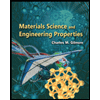
Materials Science And Engineering Properties
Civil Engineering
ISBN:
9781111988609
Author:
Charles Gilmore
Publisher:
Cengage Learning
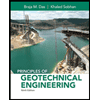
Principles of Geotechnical Engineering (MindTap C…
Civil Engineering
ISBN:
9781305970939
Author:
Braja M. Das, Khaled Sobhan
Publisher:
Cengage Learning

Principles of Foundation Engineering (MindTap Cou…
Civil Engineering
ISBN:
9781337705028
Author:
Braja M. Das, Nagaratnam Sivakugan
Publisher:
Cengage Learning

Materials Science And Engineering Properties
Civil Engineering
ISBN:
9781111988609
Author:
Charles Gilmore
Publisher:
Cengage Learning

Principles of Geotechnical Engineering (MindTap C…
Civil Engineering
ISBN:
9781305970939
Author:
Braja M. Das, Khaled Sobhan
Publisher:
Cengage Learning
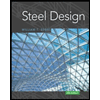
Steel Design (Activate Learning with these NEW ti…
Civil Engineering
ISBN:
9781337094740
Author:
Segui, William T.
Publisher:
Cengage Learning
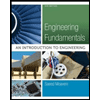
Engineering Fundamentals: An Introduction to Engi…
Civil Engineering
ISBN:
9781305084766
Author:
Saeed Moaveni
Publisher:
Cengage Learning
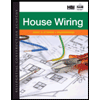
Residential Construction Academy: House Wiring (M…
Civil Engineering
ISBN:
9781285852225
Author:
Gregory W Fletcher
Publisher:
Cengage Learning